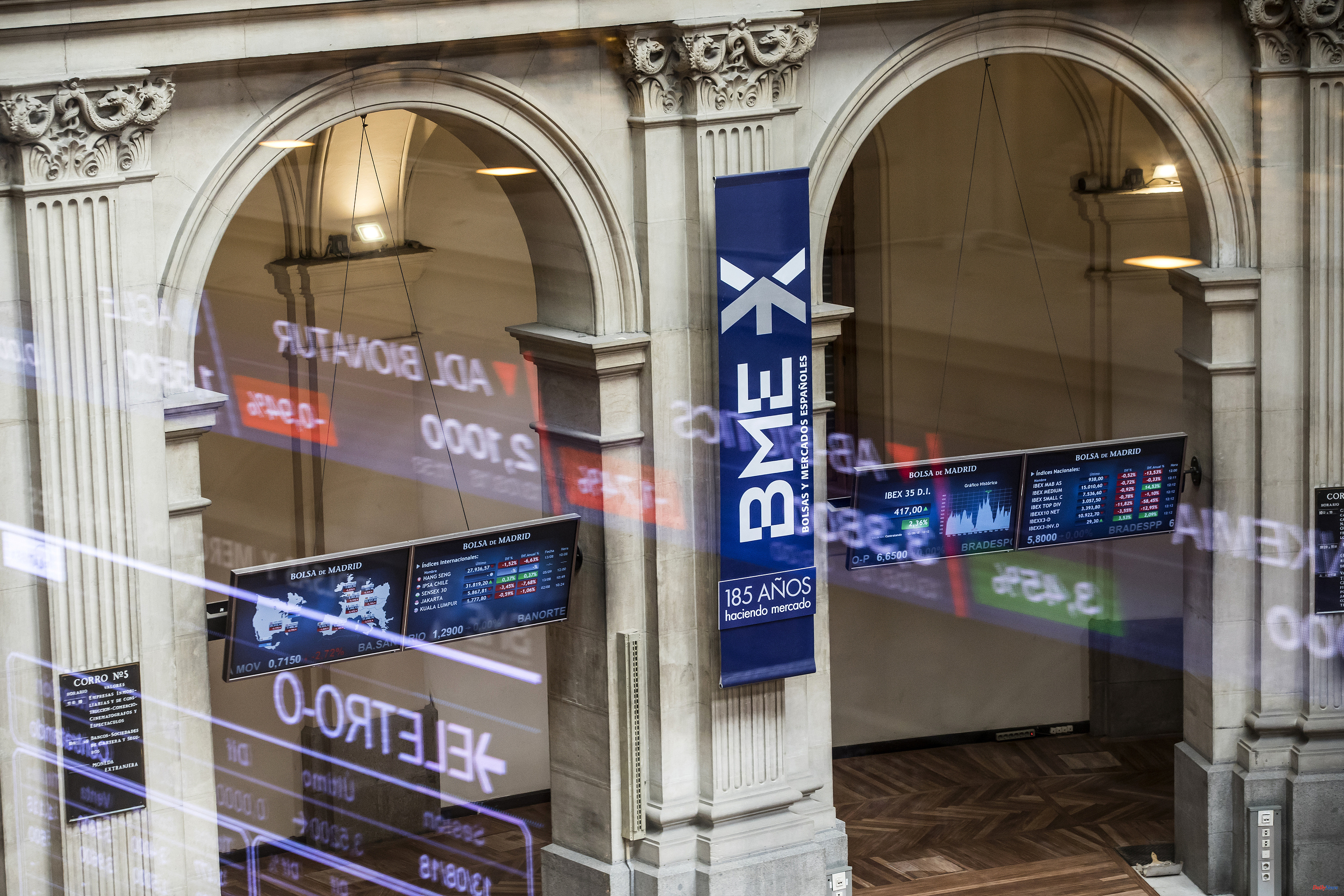Nearly half of the companies on the Ibex 35, the stock market index that integrates the largest listed Spanish companies, pay more than half of their taxes outside of Spain, in line with Ferrovial, which pays up to 82% abroad.
The weight of the tax contribution abroad has been one of the arguments put forward by Ferrovial to explain why it makes sense to migrate its headquarters to the Netherlands -from where it is confident that it will be easier for it to break through in other capital markets, including Wall Street-, a decision that has provoked a strong rejection by the Government.
Although many companies do not want to disclose this detailed information or claim that they are unaware of it, the data compiled by EFE show that more than half of the members of the main Spanish stock market indicator pay more taxes outside of Spain than inside. This is a distribution consistent with the fact that 60% of the Ibex 35 companies also generate more than half of their business outside of Spain.
The tax contribution is made up of what is paid for corporation tax - which is levied on the profit of companies - and other taxes "supported" or paid for by the company (such as contributions to Social Security); as well as for the taxes "collected" by them but that do not imply a cost (such as withholdings from workers on account of personal income tax).
In 2019, the tax contribution in Spain of the Ibex 35 companies was around 42,500 million, according to PwC, an amount that was reduced during the pandemic, but which gradually recovered, up to 37,700 million in 2021. According to EFE calculations , the global tax contribution of all of them in 2022 will exceed 80,000 million and close to half will be taxes from other countries.
The large banks Santander and BBVA, for example and according to the data provided by themselves, in 2021 respectively paid 78.9% and 74.1% of their taxes abroad (their billing also proceeds at 89 and 83% from outside Spain). However, CaixaBank, which focuses its activity more on Spain, in 2022 only paid out around 7% of its tax contribution, which amounted to 1,092 million.
Banco Santander paid 20.4776 million in taxes in 2022 worldwide. Of that amount, 4,258 million were in Spain and 16,218 abroad (representing 79.2%). Only for corporate tax, 70% was paid outside, although the previous year it was 90%.
Likewise, BBVA paid 8,215 million euros in taxes in 2021 (it does not offer detailed data for 2022), of which 2,131 were paid in Spain and 6,084 abroad (representing 74.1%). That year, 93% of corporate tax was paid abroad, although in 2022 it was 82%.
Neither Bankinter nor Sabadell have provided EFE with data on their tax contribution, while Unicaja pays all its taxes in Spain. The Mapfre insurer, with a large presence in Latin America, paid 376.2 million in taxes last year, 68% of them abroad.
The tax contribution of Inditex, the largest Spanish listed company, in its 2021 fiscal year (the last one for which figures are available, since its full-year accounts will be presented on March 15) was 6,093 million, of which 1,501 were paid in Spain. The remaining 75.4% abroad.
Another company that pays a large part of its taxes abroad is the telecommunications infrastructure company Cellnex, specifically 78.2% in 2022, when in Spain it paid 111.7 of the 513.3 million tax contribution in all its markets. . This distribution is consistent with a company that obtains 83% of its turnover outside of Spain.
The same happens with Telefónica, which last year paid 7,669 million in taxes worldwide, and 70.3% of them outside of Spain; as well as with the blood derivatives multinational Grifols (77% abroad).
There are other companies that, given their type of business and despite the scant data they provide, it is foreseeable that they also pay more taxes outside of Spain than within, such as Logista, Acerinox, ArcelorMittal or the provider of technological services for tourism companies Amadeus -one of the two largest in the world.
The case of the Socimis of the Ibex 35 (exempt from corporation tax) is uneven. While Colonial paid 65% of the 129 million paid in 2021 outside, Merlin only paid 7% of the 223 million paid last year.
In the case of Ferrovial, 82% of the 1,569 million tax contribution last year was abroad and the remaining 282 million were paid in Spain, where it has not been paid out for years due to the tax losses recorded in the country.
On the other hand, in the case of Acciona, the percentage of the tax contribution in Spain with respect to the total does not reach 43%, while in the case of ACS, led by Florentino Pérez, it is around 60%, and in the case of Sacyr, 56%.
The distribution of the tax contribution in the energy field is also uneven: Iberdrola reports 7,500 million paid in taxes in 2022 and 65% of them (4,900 million) abroad. In contrast, Repsol's percentage is 29.4% (5,000 of 17,000 million), Naturgy's 24.4% (853 of 3,503 million) and Endesa's 15% (out of a total of 3,843 million). .
Also in keeping with the location of their activity, other companies practically pay all their taxes in Spain, such as Laboratorios Rovi, Redeia (the operator of the Spanish electricity system), the energy company Solaria or even the Spanish airport manager, Aena, that it only paid 10% abroad in 2022 (a percentage very similar to that of its billing abroad).
There are companies that do not provide this data, such as the Fluidra swimming pool equipment company, the IAG air holding company or the Meliá hotel chain, or the Indra aerospace and defense technology group, among others.
According to the criteria of The Trust Project












